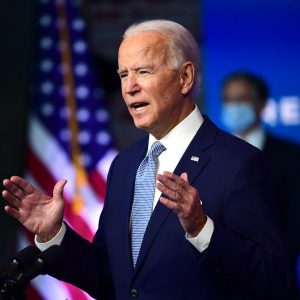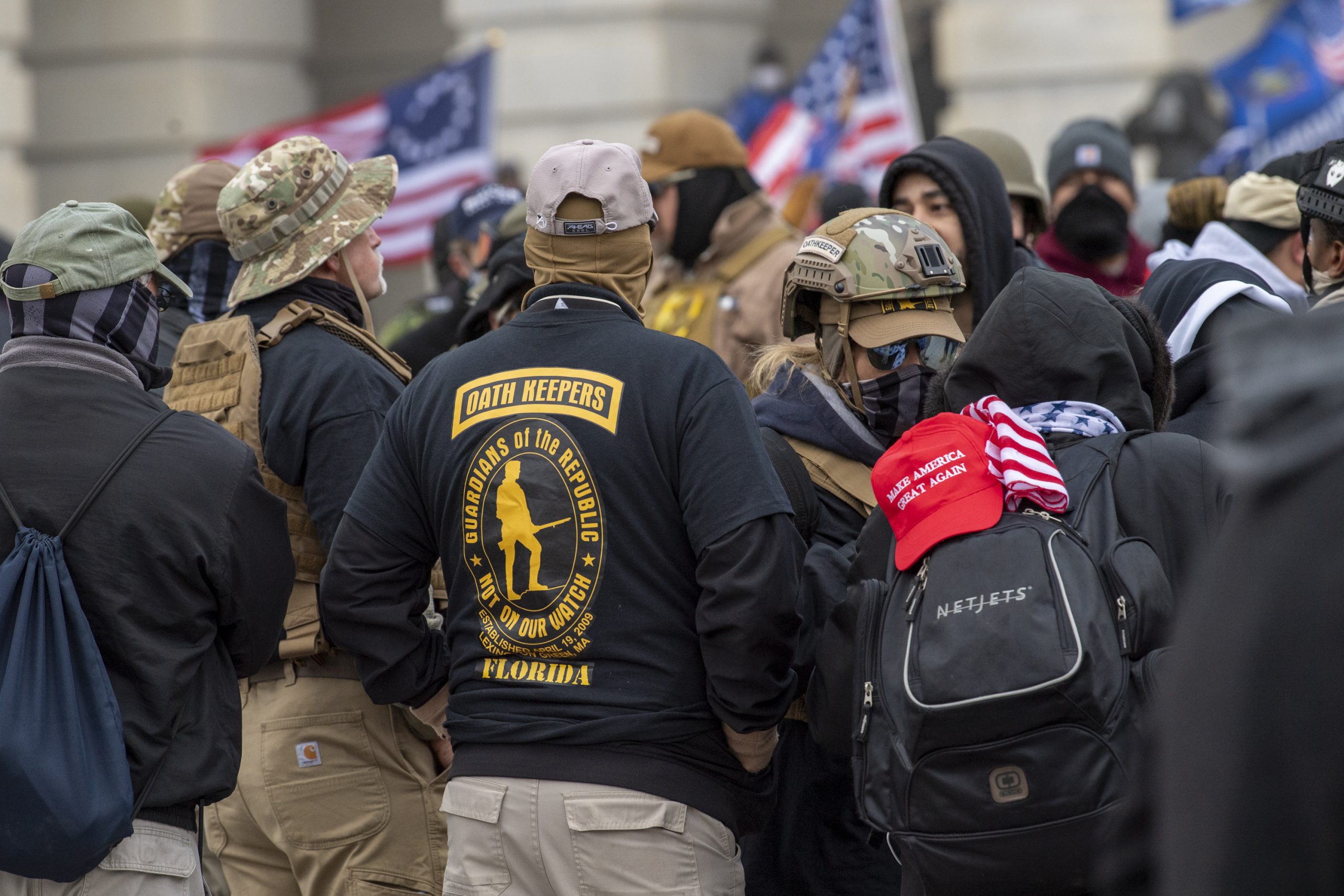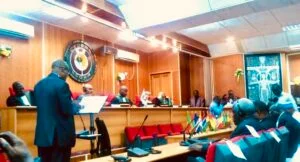Foreign News
Nigeria Committed to Libya Stability, Security – Buhari

By Martin Paul, Abuja
President Muhammadu Buhari has assured the Libya authorities of Nigeria’s continued support to enthrone political and security stability in that country.
Buhari told the Head of Libya’s Government of National Accord (GNA), Fayez Al-Sarraj, at a bilateral meeting on the margins of the AU Summit in Niamey, Niger Republic that as Nigerians “will do our best to help Libya stabilise’’.
The President who discussed recent developments in the North African country as well as bilateral issues between Nigeria and Libya with Mr.
Al-Sarraj, noted that there were over 6000 Nigerians in Libya, who see Libya as a gateway to Europe.President Buhari said the humanitarian crisis arising from insurgency and the drying up of Lake Chad, which has affected over 30 million people in the region who depend on the Lake for farming, fishing and animal husbandry has forced some Nigerians to defy the desert to make perilous journeys across the Mediterranean and the Sahara Desert to Europe.
A statement by Personal Adviser to the President on Media and Publicity, Femi Adesina, stated that also in a separate audience with UN Deputy Secretary-General, Amina Mohammed, President Buhari stressed the role the international community needed to play in recharging the Lake, noting that the financial cost was beyond the affected countries.
The President decried the menace of terrorism in the Sahel countries, noting that the instability in Libya has been a negative force on the Sahel.
The Head of Libya’s GNA told the President that there had been a lot of deaths and injuries in his country, pledging, however, that his government was determined to put an end to the situation.
‘‘The aggression must stop. The solution is not military alone we also believe in diplomacy. We are also victims of terrorism, just like Nigeria,’’ he said.
Al-Sarraj stated that Libya contributed a lot to the establishment and survival of the AU, adding that it was now time for Africa to reciprocate.
On her part, the Deputy Secretary-General told the President that growing security challenges in Africa were adversely affecting development and undermining the attainment of Sustaining Development Goals (SDGs).
She said UN Secretary-General Antonio Guterres will host the SDGs Summit during the high-level week of the 74th Session of the General Assembly in September, and will use the occasion to call for a road map for a decade of delivery of the sustainable development targets.
The Deputy Secretary-General also congratulated President Buhari for signing the African Continental Free Trade Area (AfCFTA) Agreement at the AU Summit in Niamey, saying ‘‘the entire world was waiting for Nigeria.’’
Foreign News
World Leaders React to Biden’s Withdrawal From U.S. Presidential Race

President Joe Biden’s decision on Sunday to end his campaign to seek reelection in November is generating reactions from foreign leaders.
Canadian Prime Minister Justin Trudeau said he had known President Biden for years and that “He’s a great man.
“Everything he does is guided by his love for his country.
As President, he is a partner to Canadians — and a true friend.“To President Biden and the First Lady: thank you.
”German Chancellor Olaf Scholz in his reaction on X, said, “Joe Biden has achieved a great deal – for his country, for Europe, for the world,
“Thanks to him, transatlantic cooperation is close, NATO is strong, and the U.
S. is a good and reliable partner for us.“His decision not to run again deserves recognition.”
Reacting in a statement, new British Prime Minister Keir Starmer said, “I respect President Biden’s decision and I look forward to us working together during the remainder of his presidency.”
He added: “I know that, as he has done throughout his remarkable career, President Biden will have made his decision based on what he believes is in the best interests of the American people.”
Israeli defense minister Yoav Gallant on his part thanked Biden for his unwavering support of Israel over the years.
“Your steadfast backing, especially during the war, has been invaluable.
“We are grateful for your leadership and friendship,” he added.
SPANISH PRIME MINISTER PEDRO SANCHEZ ON X:
Spanish prime minister Pedro Sanchez in his comments on X said he admired “the brave and dignified decision of president @JoeBiden.
“Thanks to his determination and leadership.
“The U.S. overcame the economic crisis after the pandemic and the serious assault on the Capitol and has been exemplary in its support for Ukraine in the face of Putin’s Russian aggression.
“A great gesture from a great president who has always fought for democracy and freedom.”
Irish prime minister Simon Harris said in a statement: “On behalf of the people and government of Ireland. I … would like to thank you Mr President for your global leadership and your friendship as you make your announcement that you will not stand in the 2024 U.S. Presidential election.”
Harris who reacted in a statement added:
“Joe Biden, in all the offices he has held, has always been an unwavering voice and passionate worker for peace on the island of Ireland and our country owes him a great debt for this.”
Some of the other world leaders who reacted to Biden’s withdrawal are: Kremlin spokesperson Dmitri Peskov who in an interview with shot News outlet, said: “The elections are still four months away.
”And that is a long period of time in which a lot can change.
”We need to be patient and carefully monitor what happens.”
”The priority for us is the special military operation,” Peskov added, referring to the war in Ukraine.
Norwegian prime minister Jonas Stoere, his Polish and Czech counterparts Donald Tusk and Petr Fiala respectively reacted to Biden’s withdrawal from the U.S. presidential race. (Reuters/NAN)
Foreign News
1 killed as Kenyan Anti-government Protests Intensify Again

At least one person was killed in renewed anti-government protests across Kenya on Tuesday, a Reuters reporter said, as police clashed with demonstrators demanding that President William Ruto step down.
Youth-led nationwide protests that broke out a month ago against proposed tax hikes have continued even after Ruto withdrew the legislation and fired almost all of his cabinet.
Activists say they want Ruto to resign and are calling for systemic changes to clean up corruption and address poor governance.
At least 50 people have been killed in the protests to date, the government-funded Kenya National Commission on Human Rights (KNCHR) said on Tuesday.
In Kitengela, a town on the southern outskirts of the capital Nairobi, police fired repeatedly in the direction of hundreds of protesters, some of whom were throwing rocks, Reuters TV footage showed.
The protesters also burned tyres, waved Kenyan flags and chanted “Ruto must go!”
A Reuters reporter saw the body of one protester lying on the ground with blood oozing from a head wound.
The national police spokesperson declined to comment.
Tuesday’s protests appeared to be some of the biggest since Ruto withdrew the tax increases on June 26.
The Nation newspaper reported demonstrations in at least 23 of Kenya’s 47 counties.
In Nairobi’s city centre, riot police fired tear gas at several dozen protesters. An ambulance service posted footage on X showing its personnel carrying away someone injured there on a stretcher.
Demonstrators in the coastal city of Mombasa waved palm fronds as they marched, while litter burned in the street, images on Kenyan television channels showed.
The protests have created the biggest crisis of Ruto’s two years in power.
With Kenya spending over 30 per cent of its revenues just paying the interest bills on its debt, he has been caught between the demands of lenders to cut deficits and a hard-pressed population reeling from rising living costs.
“Ruto is very incompetent. He has no leadership skills. He just wanted the title of president of this country,” said one protester in Nairobi who did not give his name.
“The guy is a puppet to the IMF. That is it. Whatever he’s doing, he’s doing for the IMF.”
The International Monetary Fund (IMF) has been a major target of the ire of young Kenyan protesters, who have accused it of being the driving force behind the proposed tax hikes.
The IMF has said its main goal through its lending programmes with Kenya has been helping the country overcome economic challenges and improve its people’s well-being.
Ruto’s office had announced “multi-sectoral” talks for this week to address grievances raised by the protesters, but there was no sign they had begun.
Most of the leading activists behind the protests have rejected the invitation, instead calling for immediate action on issues like corruption.
Ruto’s spokesperson did not respond to a request for comment.
The protests began peacefully but later turned violent.
Some demonstrators briefly stormed parliament on June 25, and the police opened fire.
In addition to the 50 deaths, 413 people have been injured, 682 have been arbitrarily detained and 59 have been abducted or are missing in connection with the protests, KNCHR said.
Ruto has promised to investigate accusations of abuse but has broadly defended the conduct of the police and accused criminals of hijacking peaceful protests.
On Monday, he accused the Ford Foundation, an American philanthropic organisation, of sponsoring those who had caused “violence and mayhem” in Kenya, without providing evidence.
The Ford Foundation rejected the allegation, saying it did not fund or sponsor the protests and has a strictly non-partisan policy for its grant-making. (Reuters/NAN)
Foreign News
Court Nullifies ECOWAS Commission Staff’s Dismissal

The ECOWAS Court of Justice has nullified the dismissal of Mr Momodu Cham, a former staff of the Commission, saying it breached Article 69 of the ECOWAS staff regulations.
Cham had filed the suit following his dismissal from his position as a Procurement Officer with the Inter-Governmental Action Group against Money Laundering and Terrorism Financing (GIABA), a specialised ECOWAS agency.
The applicant, a community citizen residing in Banjul, Gambia, had joined the Economic Commission for West African States (ECOWAS) and its President, as first and second Respondents, respectively, in the suit challenging his sack.
Delivering judgment, Justice Dupe Atoki, the Judge Rapporteur, held that the cessation of Cham’s salary by the Commission before the exhaustion of the appeal process was arbitrary, unlawful, null, and void.
According to Justice Atoki, the action of the Commission is contrary to Article 73(b) of the ECOWAS Staff Regulations.
The Court, therefore, ordered the Respondents to pay Cham his salary arrears and other entitlements from January 2021 to June 2021, as compensation.
It further ordered the Commission to pay Mr Cham’s salaries and emoluments from July to December 2021 as compensation for the unlawful dismissal.
“Requesting an on-the-spot response to charges without prior notice or an opportunity to prepare a defense violates procedural safeguards outlined in the ECOWAS Staff Regulations.
“The regulations are designed to ensure an Applicant’s rights are fully maintained until the Council’s final decision.
“Consequently, the summary dismissal of the Applicant by the 2nd Respondent breached Article 69 of the regulation.
“Therefore, the cessation of the Applicant’s salary and other emoluments after invoking the right of appeal is a violation of Article 73(b) of the ECOWAS Staff Regulations,” Justice Atoki held.
The Court, however, declined to grant any orders for mandatory injunctions against the Commission and reinstatement of the applicant .
The Applicant had contended at the trial that he was suspended on July 11, 2019, following a forensic audit report by Ernst and Young UK, which implicated him in irregularities related to the purchase of IT equipment for GIABA.
He said that on Jan. 26, 2021, he was summarily dismissed, and his salaries and emoluments were withheld in violation of the ECOWAS Staff Regulations.
Cham had prayed the court to grant him several reliefs, including a declaration that his dismissal was arbitrary, null, and void.
He also sought an order setting aside his dismissal and the immediate payment of his salary arrears and other entitlements from January 2021.
The applicant had also prayed for his reinstatement to his position as a Procurement Officer and compensation for costs incurred in prosecuting the suit.
The Respondents, in their defense, had however, maintained that the applicant was properly suspended and later dismissed following a forensic audit report and a subsequent query.
They had also argued that the dismissal was appropriate due to the allegations of gross misconduct, embezzlement, theft, fraud, and abuse of trust.
The three-member panel also had Justices Gberi-bè Ouattara, presiding, and Sengu Mohamed Koroma, as a member.(NAN)



























